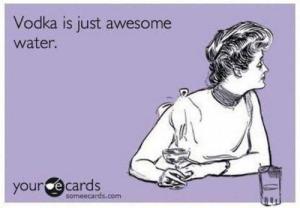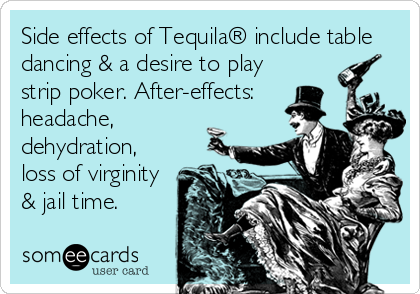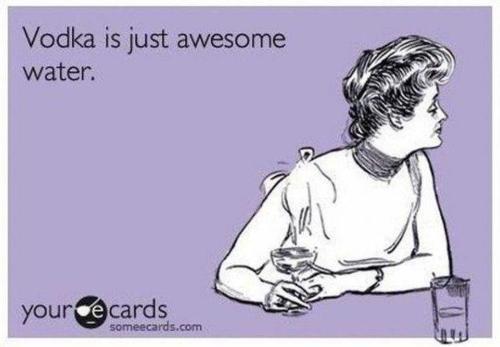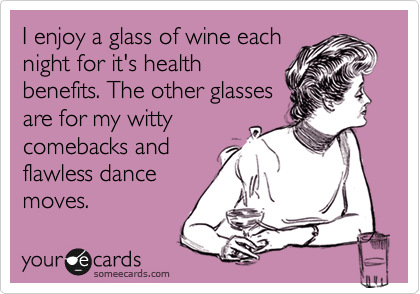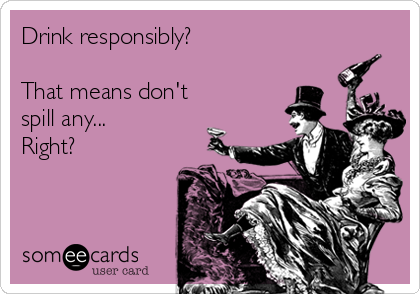I’m just five short months from traveling abroad, where drinking ages remain in the teenage years and are minimally imposed. Shortly after my return, I’ll turn 21. I figured now would be as good a time as any to figure out this whole “alcohol” thing. There are so many options. Why do we choose one type of alcohol over the other? How does this affect our night? More importantly perhaps, how does this affect our morning after?? I turned to friends and scientists alike to answer these pressing questions with regards to the most common on-campus alcohols: tequila, vodka, wine, and beer. My findings are as follows…
Tequila
Why We Drink It
“We’re at the bar and need to get aggressive—> Friends are taking shots all around with tequila—> dancing starts”
“Tequila = all bad things and regrets”
Friend or foe? College-aged drinkers have mixed opinions on the question–and in fact, The Rib itself discussed it in detail just a few days ago. Nevertheless, it seems we’re always ready to give tequila another chance. It may lead to “regrets” but at least we can #ThankForTheMemories.
What It Really Does
Turns out the underlying assumption of this article–that different hard alcohols will affect us differently–is “simply wrong: ethanol is ethanol, and whatever spirit you consume, it’s the ethanol that affects you” (via)… and this is from an article entitled “Does Tequila Make Us Crazy? Researchers say no, but drinkers say yes.” Shucks. Nevertheless, the article also claims, “how the liquor is consumed is also crucial. If a drinker slams tequila back in shots, then he’ll get intoxicated faster than if he were gently sipping scotch. Presto: tequila gets a reputation. That leads to the issue of self-fulfilling prophecy. If people believe tequila makes them rowdier, they may opt for tequila when they want to be rowdy.” So now you know–we love/hate tequila because we love/hate ourselves in the moments we turn to tequila to save us. As a friend put it, “I HATE TEQUILA!! People seem to think it’s some magical form of alcohol that will automatically make you have a party. But psych, alcohol can’t solve your problems and in a few hours you’ll be crying about how he didn’t text you back.”
The Morning After
“Wines, beers and spirits contain chemicals other than ethanol. These do affect how we feel, but more in that some are toxic and will lead to worse hangovers than others, rather than one making us dance really well while another makes us better at playing pool” (via). While different liquors shouldn’t get us drunk differently, they can affect how we feel the next morning differently. That being said, Forbes.com claims that tequila is the hangover-freest of the hard liquors! If you’re getting killer tequila headaches, try checking your tequila bottle – make sure the bottle says “100% agave” and check for other sugars or food color additives, because these are what can hurt the next morning. That being said, as with most alcohol, “tequila treats you the same way you treat it…If you aggressively slam it back, it will get mad and return the favor” (via).
Vodka
Why We Drink It
“I think Vodka is the everyman’s hard liquor. It’s mixed with everything and no one is supposed to enjoy it. It’s like potatoes…oh wait, it is potato.”
“Vodka: I consider this the “realest” alcohol for some reason…maybe because it’s most readily available. Therefore I think of it as the live-fast-die-young sort of drink. Gets you drunk, keeps you drunk.”
There’s nothing sexy about vodka. We drink it to get drunk. Clear Clean and simple.
What It Really Does
Now that we know all hard alcohols are the same, its all about how we drink Vodka. And since we’ve now admitted that we drink vodka to get drunk, its perceived effects are no real surprise. It’s respected as the turn-to hard alcohol, the chameleon that adapts to any situation to serve you in your pursuit of getting drunk.
The Morning After
There’s some reason to believe that cheaper vodkas can contain substances that attribute to worse hangovers. More than that, however, is the type of mixer you use. We tend to mask vodka’s weak taste with sugary flavors or mixers. Combined with the fact that alcohol already dehydrates you, this added sugar-content doesn’t help and can contribute to our head- and body-aches the morning after. AKA if you’re drinking Piña Colada Svedka and chasing with lemonade, be sure to drink lots of water before bed.
Wine
Why We Drink It
“Wine is supposed to be classy and I think I get more pleasantly drunk on it. It’s the thing people drink if they just want to get drunk with friends and hang out in someone’s room and maybe feel like they’re an adult. No one pre-games with wine though, which is weird considering we pre-game with 5% alcohol shitty beer”
“Wine makes me a great drunk. Most of the time it makes you that “sleepy” drunk that everyone talks about, but again I think that’s kind of a fabrication and is probably an existing theory because wine is the kind of thing you drink when you eat a lot or are lounging around and THAT makes you sleepy. Wine makes my cheeks all hot and rosy and it always is guaranteed to make me a happy drunk.”
Wine is a versatile friend of ours. It can be used to enhance dinner experiences, to bond with the gal pals, or simply to pre-grame with something that actually tastes pleasant and doesn’t require a shot glass and chasers. Whatever your reasoning, wine is always there for you to turn to, and no matter what the occasion, wine will rarely let you down.
What It Really Does
There may not be notable differences in hard alcohols, but some studies do believe that additional ingredients in wine and beer can affect how we experience drinking them. For example, “About 8 percent of the population is allergic to something in red wine, for example, and those who are experience coldlike symptoms or severe headaches after drinking it” (via). Richard Olsen, a neuroscientist at UCLA who studies alcohol, also believes that we have receptors that respond low concentrations of ethanol and mellow us out when we have, for example, low doses of wine (via). If correct, this might validate why some get sleepy when drinking wine. However, for most college students consuming wine 2-3 glasses at a time and without a specific allergy, wine is like any other alcohol in that it contains ethanol and that ethanol intoxicates us.
The Morning After
As I mentioned above, more so than with hard alcohols, wine may contain extra chemicals or harmful ingredients. Cheap wines, in particular, often contain flavor enhancers that contribute to bad hangovers. Red wine can also contain have methanol, a chemical also found in some darker liquors such as brandy. Methanol is like ethanol only more poisonous, inducing hangovers at lower doses (via). Champagne hangovers are also notoriously awful, and some believe this has to do with how bubbles affect our pylorus valve, draining our stomach even when it’s not full, and not allowing the alcohol to be absorbed by the stomach, instead entering our system through the intestine in a harmful way (via).
Beer
Why We Drink It
“I’m not a bro, but there’s something solid about a beer. It’s usually deemed the “last option” but I think it’s underrated. Cold beer is the best.”
“College girls don’t shut up about how they don’t like to drink beer because it requires too many of them to get drunk so that when they are drunk on beer, they’re queasy and bloated. And you know what college girls hate — being bloated. I love beer. It tastes great and it’s easy to find that perfect buzz from.”
Beer is another “everyman” drink, but a “safer” choice than vodka. Perhaps a middle ground between vodka and wine, beer can be consumed on the couch with friends or in a crowd, amping up for a big night. A great choice if still hungover from the night before, beer eases you back onto the drinking-train. Consuming beer in large quantities, especially on a full stomach, can be tough at times, but beer can also be enjoyed in small quantities, as a non-offensive companion to any meal, especially one taken outdoors in the summer time.
What It Really Does
Even when chugging, we often drink beer more slowly than we take shots. This may contribute to us finding that happy level of drunk we’re so fond of. An important thing to keep in mind with beer is that it does vary in alcohol content, and you should always be aware how strong your beer is.
The Morning After
Some believe that, like with champagne, the carbonation in beer speeds up the absorption of alcohol and results in intestinal absorption, which worsens hangovers in large doses. It’s believed that this bubble-effect can also harm us when we follow beer with liquor (via), HOWEVER, this is not largely proven. i.e. Breaking news! The common belief, “Beer before liquor never been sicker; liquor before in the clear”? Fairly unfounded! In all my research, there is not one conclusive study that can prove mixing alcohols worsens a hangover. It should be noted, however, that mixing alcohols often leads to drinking more… and, well, we all know how that ends.
All in all, the undertaking of this article has taught me a lot. Like life, alcohol is what you make of it. Drink enough and you’ll get drunk, and potentially have a great time as a result. Drink too much, however, and you won’t feel so great the next day. Lesson learned. Check back soon for a follow-up post on the best and most bizarre hangover cures! And remember: drink responsibly.
